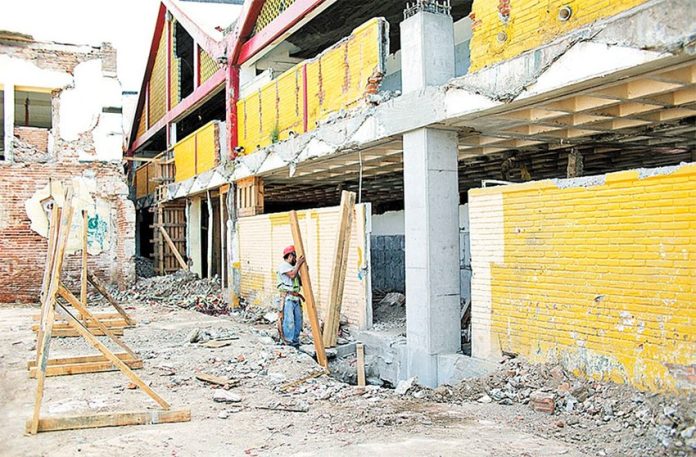Only 7% of Mexico’s municipalities — 165 out of 2,457 — have construction regulations, according to a high-ranking official at the National Disaster Prevention Center (Cenapred).
Speaking at a forum on infrastructure safety yesterday, the federal department’s deputy director of structural vulnerability said 45% of those that do have regulations don’t have complementary technical standards.
That, explained ,Joel Aragón, means their regulations are nothing more than administrative formalities that have to be completed in order to obtain approval to build.
Aragón said the absence of construction laws in most municipalities represents a huge problem because it allows substandard buildings that are vulnerable to natural disasters such as earthquakes.
“It’s written into the constitution that the municipality is the minimum unit of authority and each one is free, sovereign and responsible for its own laws. That puts us in serious trouble because there are no real construction regulations and laws and if there are, they’re not complied with,” he said.
While Mexico City does have construction regulations that were made even stricter after the devastating 1985 earthquake, thousands of homes and buildings were damaged or collapsed completely in the quake on September 19, 2017.
However, Mexico City reconstruction commissioner Édgar Tungüí said many of the affected buildings were erected before the stricter regulations were introduced and that in two of the worst-affected boroughs — Tláhuac and Xochimilco — many damaged and collapsed homes were built by their owners.
He said authorities are looking at ways they can better regulate do-it-yourself construction projects.
A year after the 7.1-magnitude quake that killed 370 people in central Mexico, including more than 200 in Mexico City, many victims in the capital and elsewhere remain in precarious situations and without adequate housing.
The Mexico office of the United Nations High Commissioner for Human Rights this week called on authorities at all levels of government to redouble efforts to guarantee the human rights of all quake victims.
Representative Jan Jarab also emphasized the need for authorities to conduct complete damage censuses, to be transparent in their use of reconstruction funds and to attend to the needs of earthquake victims in the short, medium and long terms.
Source: Milenio (sp)
